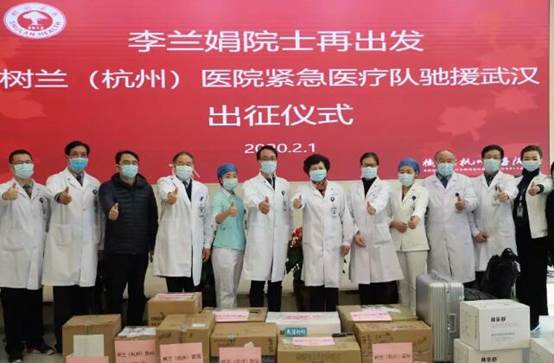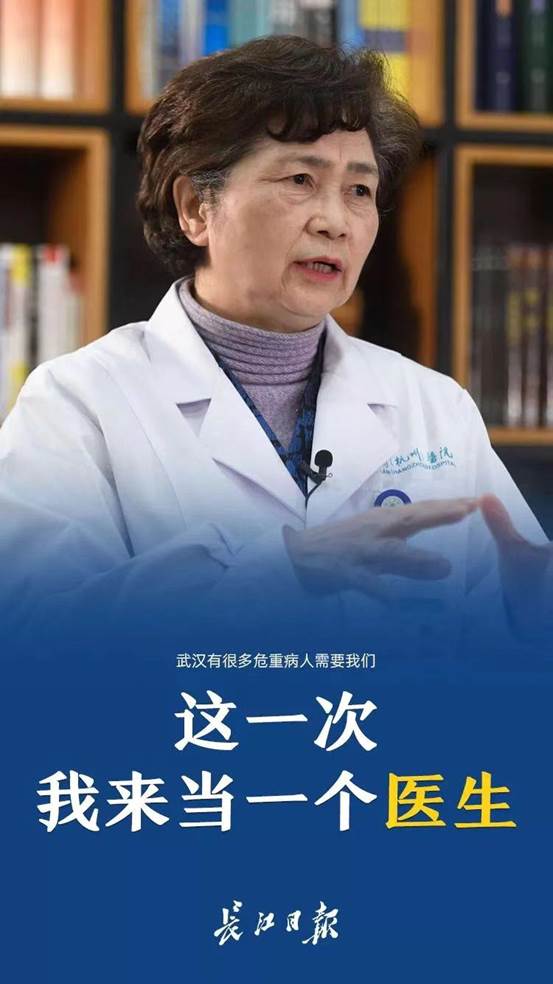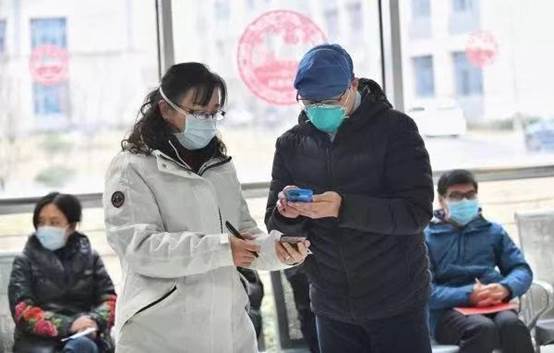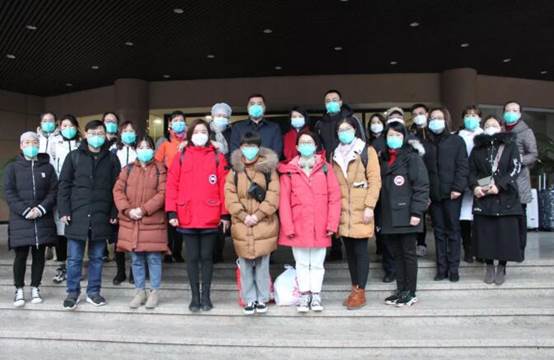Translated by: Wu Xia
At 4:40 a.m. on February 2, led by Academician Li Lanjuan of the Chinese Academy of Engineering, a high-level expert team from Zhejiang successfully arrived at Wuchang Railway Station. After a short break at the hotel, at 9 am, Academician Li Lanjuan came to the East District of Wuhan University Renmin Hospital, and immediately began the work.
The day before, the National Health Commission pointed Zhejiang Province to send an expert group to help Wuhan to help treat critically ill patients in Wuhan. Academician Li Lanjuan, 73, asked to help. Soon, a ten-member expert group led by her, Chen Zuobing, deputy director of the First Hospital of Zhejiang University, was set up and boarded the train to Wuhan at 9 o'clock that night.

On the morning of the 2nd, Academician Li Lanjuan and his team made contact with relevant persons in charge of Wuhan University Renmin Hospital. The two sides agreed that, starting on the 3rd, the Zhejiang expert team will be fully stationed in the intensive care unit, isolation ward, and fever clinic of the East District of the hospital. They will fight with local experts to jointly treat patients with new-type coronavirus pneumonia. On January 18, Academician Li Lanjuan went to Wuhan to conduct field research and made important research and judgment on the epidemic situation with Academician Zhong Nanshan.
This time, Academician Li Lanjuan said: I mainly came to be a doctor. I want to focus on critically ill patients with my team and reduce patient mortality.
In the afternoon of the same day, the Zhejiang Expert Group and the Wuhan University Renmin Hospital Expert Group gathered together to discuss treatment strategies for critically ill patients. "Wuhan's medical technology is very good. We come with a learning attitude. We bring people and equipment, and we must guard against medical staff infection. We hope to help without causing chaos and offside." Zhejiang University First Hospital Deputy Dean Chen Zuobing said. The Zhejiang expert team introduced their artificial liver system, four-antibody and two-balance therapy, CRT hemodialysis and other technologies. The Wuhan expert team showed great interest.

Li Lanjuan's team also brought another “Zhejiang experience”, namely anti-virus, anti-hypoxemia, anti-shock, anti-secondary infection, and “four-anti-two-balance” treatment strategy to maintain water and electrolyte balance and micro-ecological balance. This strategy has played a significant role in the response to the H7N9 avian influenza epidemic in Zhejiang Province, significantly reducing the case fatality rate in critically ill patients.
"This time in Wuhan, we will combine treatments such as artificial liver and micro-ecological regulation with ventilator oxygen supply schemes, and use the" Zhejiang Experience "to treat more patients in accordance with the" four antibody and two balance "therapy. We hope to promote these technologies in Wuhan, and use them in better treating patients."Said Academician Li Lanjuan.

"This time we brought in elite soldiers from the infectious disease department, intensive care unit, artificial liver and other departments, as well as the most advanced equipment. “Academician Li Lanjuan said that we will not withdraw before the battle is won.”Chen Zuobing said.
Besides the earlier deployment of the Xinjiang medical team, the National Health Commission has urgently dispatched the Zhejiang medical team headed by Academician Li Lanjuan, and three medical teams including Sichuan, Liaoning, and Chongqing with 500 people to support Renmin Hospital East District. The teams will fully supports the Hospital to carry out the treatment of patients with new pneumonia. In the next step, the National Health Commission will also coordinate all parties to guarantee the material supplies of the Hospital.
The reporter learned from the Zhongnan Hospital of Wuhan University that at 7 am on January 28, more than 20 medical staff from Jiangsu Province arrived, and after a short break, they were quickly put into anti-epidemic treatment work at Zhongnan Hospital. In the early morning of January 27, 150 members of the first batch of anti-epidemic medical teams in Hebei arrived in Wuhan; in the early morning of the 28th, the second batch of 15 anti-epidemic medical teams arrived in Wuhan. The Hebei Anti-Epidemic Relief Medical Team mainly works in Wuhan No. 7 Hospital, and works with doctors and nurses of Zhongnan Hospital of Wuhan University to assist in this work.
"We have 12 doctors and 48 nurses who have been assigned to the critical care group." Zhu Guijun, a doctor from Hubei, said. Zhu Guijun was one of the first members of the Hebei Anti-Epidemic Medical Team from the Fourth Hospital of Hebei Medical University. The Hebei Medical Team was assigned to Wuhan No. 7 Hospital, which was divided into 4 general medical groups and 1 intensive group, and he serves as the leader of the intensive group.
Shen Kangkang, also from the Fourth Hospital of Hebei Medical University, served as the leader of the nursing team. "The doctors and nurses at the local hospital took us as comrades-in-arms, and we quickly adapted to the working environment!" "We will definitely win this war! "Wang Yamei, a medical aid team member from the Fourth Hospital of Hebei Medical University, said firmly.
Since the outbreak of this war, medical workers in universities across the country have helped Wuhan, and they have fulfilled their promise to be doctors with practical actions.
In this epidemic war, there are many medical workers whose names we do not know. They persist and fight hard to keep their promise. Let us remember their common name, "White Warrior", come on Wuhan, come on China!

